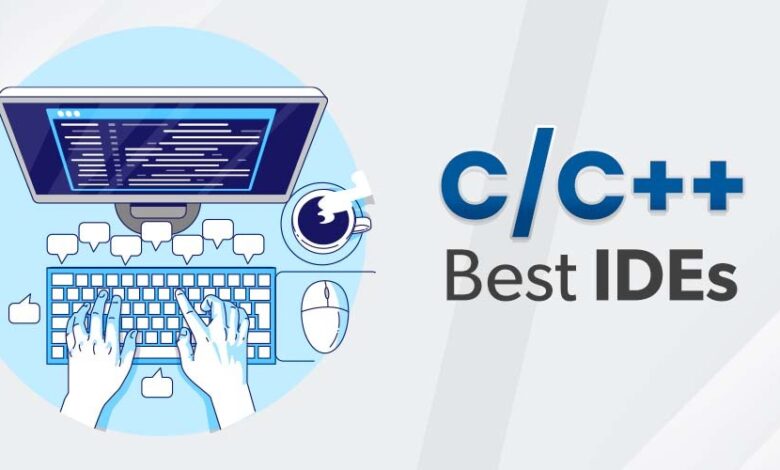Side-by-Side: A Practical Performance Test of the Top C++ IDEs in 2025

For developers writing in C++, the right IDE can mean the difference between efficient productivity and constant bottlenecks. In 2025, there are more choices than ever—but more isn’t always better. Many developers choose their IDE based on reputation, habit, or whatever tool their last job used. Yet when performance, debugging support, and extensibility matter, not all IDEs are created equal.
So which is truly the best IDE for C++ in 2025?
To find out, we conducted a practical side-by-side test of today’s leading C++ IDEs. Rather than rely on opinion or marketing hype, we measured real-world performance and usability across a set of common developer workflows. If you’re considering switching IDEs—or wondering if your current choice is slowing you down—this breakdown is for you.
The Contenders
For this comparison, we selected the six most commonly used and well-supported C++ IDEs as of 2025:
– Visual Studio 2022/2025 (Windows)
– CLion by JetBrains
– Eclipse CDT
– Qt Creator
– Code::Blocks
– Xcode (for macOS/iOS development)
Each of these tools is used professionally by thousands of C++ developers and teams. Some, like Visual Studio, are deeply integrated with specific platforms. Others, like CLion, pride themselves on cross-platform support and deep language insight.
How We Tested
Rather than synthetic benchmarks, we used a practical, real-world test suite across four categories:
- Project Indexing Speed – Time taken to scan and index a medium-sized C++ project (approximately 50k LOC)
- Compile/Build Time – Full project build from clean state
- Debugging Support – Ease of setting breakpoints, watch variables, step-through speed, and memory inspection
- Memory Footprint – RAM used at idle and during heavy tasks (build + debug)
- Refactor/Code Insight Tools – Accuracy and responsiveness of autocomplete, refactoring, and error suggestions
Each IDE was tested on the same machine (Windows 11, 16GB RAM, Intel i7) and with the same codebase. Mac-specific tools like Xcode were tested separately on an M1 MacBook Pro.
Results Breakdown
1. Project Indexing Speed
- Winner: CLion
- Runner-Up: Visual Studio
CLion was the fastest at indexing the codebase on first import, thanks to its optimized IntelliJ platform backend. Visual Studio wasn’t far behind, especially in its 2022 and 2025 iterations, which added threading to its IntelliSense engine.
Eclipse CDT and Code::Blocks lagged significantly behind, taking over 3x longer in some cases.
2. Compile/Build Time
- Winner: Qt Creator
- Runner-Up: Visual Studio
Qt Creator optimized builds using its native integration with qmake and CMake, and performed particularly well with GCC and Clang. Visual Studio impressed with MSVC compilation speeds on Windows, but underperformed with larger template-heavy files.
3. Debugging Support
- Winner: Visual Studio
- Runner-Up: CLion
This is where Visual Studio pulled far ahead. Its debugger UI, memory viewer, call stack inspection, and integration with native Windows binaries make it the top choice for C++ developers on that platform.
CLion’s LLDB and GDB integration performed well but had a steeper learning curve and was less visually intuitive. Eclipse and Code::Blocks offered basic functionality, but breakpoint behavior was occasionally unreliable.
4. Memory Footprint
- Winner: Code::Blocks
- Runner-Up: Qt Creator
Unsurprisingly, the lighter IDEs performed better here. Code::Blocks remained under 400MB even during a build. Qt Creator stayed lean at around 600MB. In contrast, Visual Studio and CLion both peaked above 1.2GB of RAM during debugging sessions.
This matters for developers on older hardware or those managing multiple projects in parallel.
5. Code Insight and Refactoring
- Winner: CLion
- Runner-Up: Visual Studio
CLion delivered the most accurate, real-time code analysis—including smart refactors, error suggestions, and even live templates. Its autocomplete felt precise, even in deep templates and nested logic.
Visual Studio has improved dramatically in this area but still falls behind CLion in cross-platform compatibility and non-MSVC toolchain support.
Developer Experience: UI, Plugins, and Ecosystem
While raw performance is key, developer experience plays a major role in long-term productivity.
– CLion: Loved by developers for its customizable interface, keyboard shortcuts, and deep plugin ecosystem from JetBrains.
– Visual Studio: Extensive plugin support, Microsoft ecosystem integration, and wide familiarity make it enterprise-ready.
– Qt Creator: Best suited for teams already developing in Qt. Fast, focused, but less intuitive for newcomers.
– Eclipse CDT: Aging UI, plugin conflicts, and occasional crashes make it feel outdated despite flexibility.
– Xcode: Excellent for Apple-targeted development but very limited support for non-Apple C++ environments.
– Code::Blocks: Lightweight and fast, but lacks advanced features for modern codebases.
What About Cross-Platform Development?
If you’re developing for Linux, macOS, or embedded systems, cross-platform support matters. Here’s how the IDEs rank for multi-OS development:
– CLion: Excellent out-of-the-box support for GCC, Clang, CMake, and cross-compilation toolchains.
– Qt Creator: Strong CMake and embedded support. Ideal for UI/UX-driven apps with cross-platform GUIs.
– Eclipse CDT: Supports cross-compilation but requires more manual configuration.
– Visual Studio: Great for Windows, weaker support elsewhere without WSL or Docker setups.
– Xcode: Apple-only.
– Code::Blocks: Usable, but requires more effort to set up toolchains and compilers manually.
So, Which IDE Wins?
Ultimately, the “best” C++ IDE depends on your use case:
– If you’re on Windows building enterprise software: Visual Studio wins. Its debugging tools and MSVC integration are unmatched.
– If you want a cross-platform powerhouse: CLion offers deep insight, smart tools, and fantastic language support.
– If you’re developing embedded or Qt-based apps: Qt Creator combines speed with tight GUI integration.
– If you need a lightweight tool: Code::Blocks still gets the job done for smaller projects.
But overall, CLion stands out as the best IDE for C++ in 2025 based on balance—between performance, cross-platform flexibility, and intelligent coding tools.
Final Thoughts
C++ development has never been easy—but with the right tools, it can be far more efficient. As projects grow in complexity, investing time in selecting the right IDE pays off many times over.
For performance, productivity, and long-term scalability, don’t just settle for what’s familiar. Use real metrics, hands-on testing, and future-focused features to guide your choice.
Explore the full comparison and in-depth breakdown in this C++ IDE guide and decide which IDE best fits your workflow—not just today, but for years to come.




